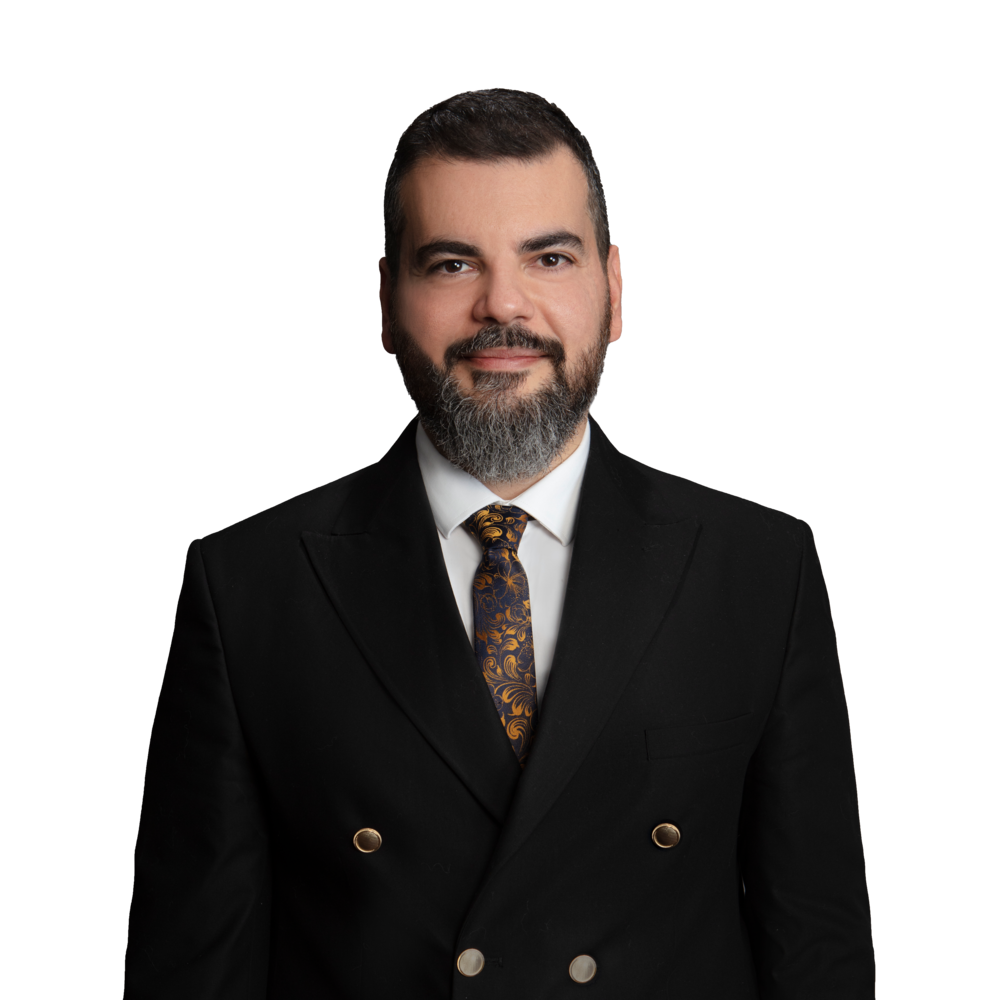Medical and health tourism has become an emerging industry within the past decade. Over the years, the number of health tourists and medical tourists has noticeably increased. With the rapid growth, incidents relating to ethical and legal issues became the main reasons for disputes. These issues mainly revolve around consumer and privacy protection, malpractice, organ trafficking, cross-border affairs, insurance and accreditation of facilities, and so on. One of the most important problems to be discussed in this article is the liability arising from the damage that occurs during the treatment process.
What is Medical Tourism and Health Tourism?
Medical tourism and Health Tourism may generally be defined as traveling from the place of residence ("departure country") to another place ("destination country") in order to acquire health-related services. This is a very broad concept that involves considerable income for the destination country and extensive opportunities for the medical tourist. The term medical tourism is largely used for receiving medical treatment and procedures at the destination country, on the other hand the term health tourism is used for receiving a wide range of health services at the destination country from thermal spas, beauty treatments, rehabilitation and retirement communities to services for the elderly. Globalization allows people to search for cheaper but concurrently qualified medical services in other countries. According to the Medical Tourism Association, about 14 million people in the world travel to other countries for obtaining medical care. It is a movement worth between 50 and 70 thousand million dollars. Many countries are investing in medical technologies and qualified healthcare hospitals to receive more medical tourists. Based on the American Journal of Medicine, the top 10 destination countries for medical tourism are shown below:
- Costa Rica
- India
- Malaysia
- Mexico
- Singapore
- South Korea
- Taiwan
- Thailand
- Türkiye
- United States
Asian countries such as Malaysia, Thailand, and India have implemented strategies and programs to attract foreign patients. They have established world-class medical centers with an agreeable combination of price and quality compared to the EU or United States. The fact that Türkiye is in the top 10 destination countries in the above-mentioned ranking indicates that the healthcare industry in Türkiye is in a well-placed position globally. Türkiye is the center of attraction due to its strategic geographic location and proximity to Europe, Asia, the Middle East, North and Central Africa, and Russia.
Medical Tourism in Türkiye
The service quality of many hospitals in Türkiye is ascertained by world-famous accreditation organizations. More than 45 Turkish hospitals are accredited by the Joint Commission International ("JCI"). JCI accreditation is a valorization of the observance of a medical institution with established and internationally recognized standards. Türkiye ranks second in the world in terms of the number of hospitals accredited by this organization, which is deemed to be qualified as high quality medical treatment. The cost of medical services in Türkiye is 30-40% lower than in Europe, the USA, or Israel, but at the same time, the quality of medical care remains at a high level. Türkiye has become a fully adapted medical center to receive foreign patients.
Foreign patients are generally provided with transfer from the airport, accommodation in a hotel until the test results and the need for inpatient treatment are received, accommodation of relatives for the period of treatment, round-the-clock translator, and assistance in preparing all necessary documents in the native and Turkish languages.
Incentives Provided by the Turkish Government
Through the implementation of the health transformation program, health and medical tourism received support from the government. Most of the facilities in the field of health and medical tourism were encouraged by introducing tax incentives. A government contribution is also provided for the costs associated with documents, certificates and accreditations necessary for healthcare hospitals to comply with international technical legislation or to operate in foreign markets
The Main Problems Usually Arise During the Treatment Process
The leading disputes mostly show up in the cross-border area. The health institution needs to be aware that international patients may be protected by the laws of the departure country, unlike local patients. There are many issues that must prominently be checked before arriving in the destination country: language barriers, choosing intermediary facilitator agencies, differences between organ transplantation regulations, difficulties relating to visa and residence of patients, etc.
In the legal framework the medical record transfers are one of the main issues that may be subject to objections. The European Union has established specific regulations in order to protect personal and medical data. Only three countries (Switzerland, Canada, and Argentina) are recognized to have data protection safeguards consistent with the European Standards. Regrettably laws regarding privacy and data transfer in the destination countries are currently unregulated in medical tourism.
The underlying reason for the continuous emergence of disputes in the malpractice area is due to the absence of an organized international system that can provide legal solutions for medical tourists.
It should not be forgotten that some beauty industry facilities do not have any formal medical education. This can cause great harm to the patient.
Legal Regulations Established by the Turkish Government
Primarily two kinds of concepts are used by the Ministry of Health in the health tourism sector. Patients are treated in different pricing schedules according to these concepts.
1. People who travel to another place to gain health from their places of residence are called health tourists.
2. "Patient receiving services within the scope of Tourist Health" for tourists who have to receive emergency or unplanned health services during their vacation.
It is possible to determine the problems in the field of health tourism from the legislation prepared by the Ministry of Health. In this context, the legislation studies carried out by the Ministry of Health in order to regulate the issues in health tourism are as follows: Regulation on Private Health Institutions Providing Outpatient Diagnosis and Treatment, Private Hospitals Regulation, Regulation No. 28437 on amending the Regulation on Dialysis Centers, and most importantly Regulation on International Health Tourism and Tourist Health (the "Regulation") and Directive on Health Services to be provided within the scope of Health Tourism and Tourist Health ("Directive").
According to the Directive, health institutions which accept international patients have to prepare all documents and patient consent forms in different languages (in English at least) for the foreign patients.
Within the scope of Circular No. 2011/41 of the Ministry of Health, the procedures and principles regarding the pricing of the health services to be provided in public hospitals have been determined. This tariff will be applied to patients who receive treatment services within the scope of health tourism.
Bilateral agreements signed by Türkiye should also be evaluated within the scope of international legislation on health tourism. Currently, bilateral agreements have been signed with more than 20 countries and these agreements contribute to the development of health tourism.
Legal Procedure to be Applied in the Health Tourism Sector in Türkiye
Based on Article 14, Paragraph 2 of the Regulation:
«The necessary registration and notification system is established by the Ministry in order to evaluate the complaints about the disputes that may arise during the implementation of international health tourism and tourist health. Regarding the complaint procedure, foreigners are informed by the health facility of international health tourism prior to the provision of health services».
- Responsibility of the Medical Attendant
In case of violation of the obligation of care and attention, the activity of the medical attendant will constitute a violation of the law and criminal liability. Here, there is a mandate agreement relationship between the patient and the doctor, and the duty of care and attention is based on Article 506 of the Turkish Law Of Obligations. In the interventions performed as a result of medical necessity, contractual relationship shall not be established between the patient and the doctor, the accepted situation in Turkish Law is called management of affairs without mandate. In this case, the doctor will be responsible for all kinds of negligence in accordance with Article 527 of the Turkish Law Of Obligations.
- Responsibility of Medical Establishment
- There is a relationship specific to public law between the patient and the administration (public hospital). In accordance with Article 129/5 of the Constitution, as a result of faulty administrative action, a lawsuit for compensation may be filed against the Ministry of Health. The Court of Cassation has made it a judicial precedent that a lawsuit can be filed against the administration in cases of both service and personal fault.
- There is a contractual relationship between the private hospital and the patient. The Court of Cassation also accepts that a contractual relationship has been established between the patient and the private hospital (patient admission contract), and that the hospital's responsibility is strict liability in accordance with Article 66 of Turkish Law Of Obligations in settled judicial precedents. Disputes between the private hospital and the patient should be resolved in accordance with the legal regulations provided by the mandate agreement.
- Distribution of Responsibility Between the Intermediary Company and the Doctor/Hospital
It is by the Court of Cassation's decision that the intermediary company and the doctor/hospital serving in Türkiye will be jointly responsible.
Potential Lawsuits To Be Filed
• Material/Moral Compensation:
Compensation will be awarded in accordance with the provisions of the Turkish Law of Obligations, as the law of the place of unlawful medical intervention.
• Tort Action:
The health tourist can also file a lawsuit against the hospital/doctor based on the provisions relating to tortious acts.
Conclusion
Malpractice, consumer privacy and data protection, organ trafficking and alternative medicine are terms in need of further legislation and new regulations. Ethical and legal issues relating to hospital/facility and patient relationships also have to be addressed during the development of medical tourism. Inconsistencies or mistakes made by a person or an institution in the field of health tourism negatively affect the sector in general. For this reason, it is recommended that all sector representatives take the necessary measures from the beginning with the sense of "preventive law". In this context; health tourism companies should take individual measures for the establishment of a liability policy or compensation funds for the compensation of damages arising from the legal relationship between the intermediary companies and the international patient.
With today's developing technology, many countries have paid attention to different areas in the field of health and have chosen to specialize in these areas. Health tourism has reached a position that attracts the attention of all countries, exceeding around 70 billion dollars in the world. About 500 thousand foreign patients were treated in Türkiye in 2021 according to Ankara Medical Tourism Association (ASTUD), Türkiye is well established in the medical tourism industry and aims to have $20 billion share of the global healthcare market by 2023.
References
- GÜR OMAY Esma Gültüvin, CENGİZ Emrah, "Health Tourism in Turkey: Opportunities and Threats", Mediterranean Journal of Social Sciences, MCSER Publishing, Rome-Italy, Vol 4 No 10, October 2013
- IZADI Morteza, AYOUBIAN Ali, SAADAT Seyed Hasan, ZARNAQ Rahim Khodayari, ABBASI Sepehr, MOEIN Neda, HEKMAT Mostafa, "Medical Travel: The Ethical and Legal Challenges", International Journal of Travel Medicine & Global Health, Vol. 1, Issue 1, Spring 2013
- Uluslararası Sağlık Turizmi Ve Turistin Sağlığı Hakkında Yönetmelik, July 13, 2017
- DALEN James E., ALPERT Joseph S., "Medical Tourists: Incoming and Outgoing" The American Journal Of Medicine Vol 132, No 1, January 2019
- TONTUŞ H. Ömer, "Sağlık Turizmi Nedir?" SATURK
- ALIU Armando, ÇILGINOĞLU Hakkı, ÖZKAN Ömer, ALIU Dorian "Medical Tourism Market And Inter-Stakeholders’ Relations In Turkey: A Comparative Investigation From Reverse Innovation And Destination Governance Viewpoint", May 2016
- AYDIN Gökhan, KARAMEHMET Bilge "Factors Affecting Health Tourism And International Health-Care Facility Choice" International Journal of Pharmaceutical and Healthcare Marketing Vol. 11 No. 1, 2017 pp. 16-36
- BELADI Hamid, CHAO Chi-Chur, EE Mong Shan, HOLLAS Daniel "Does Medical Tourism Promote Economic Growth? A Cross-Country Analysis", Journal Of Travel Research, October 26, 2017
- Sağlık Turizmi Ve Turist Sağlığı Kapsamında Sunulacak Sağlık Hizmetleri Hakkında Yönerge, February 19, 2016
- https://khgmbutcemuhasebedb.saglik.gov.tr/Eklenti/30393/0/244-ikli-anlasma-yurt-disipdf.pdf
-
Kemal Altuğ Özgün
Managing Partner




